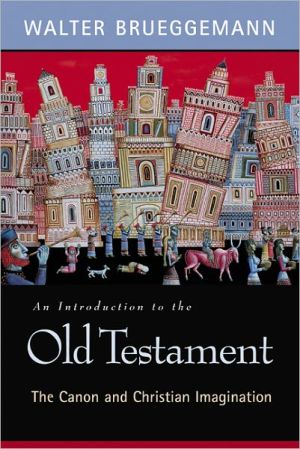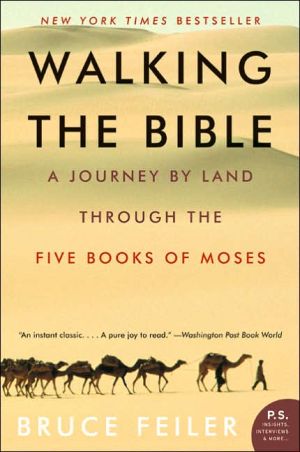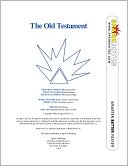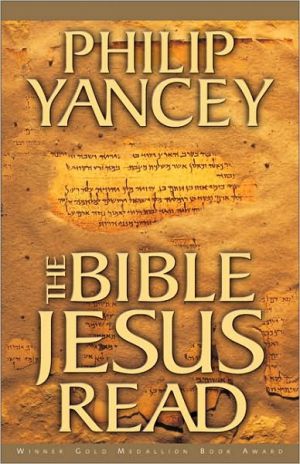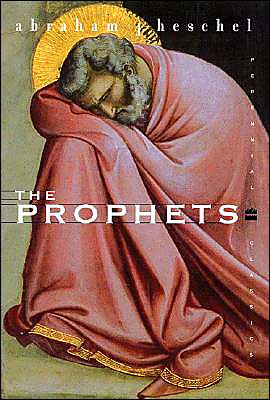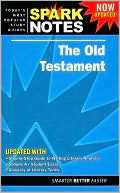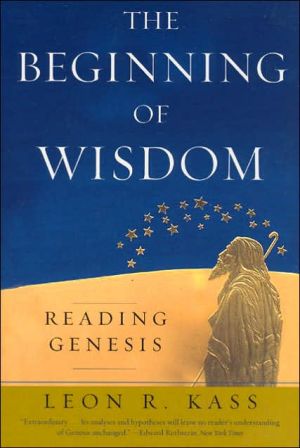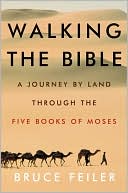Introduction to the Old Testament: The Canon and Christian Imagination
In this book Walter Brueggemann, America's premier biblical theologian, introduces the reader to the broad theological scope and chronological sweep of the Old Testament. He covers every book of the Old Testament in the order in which it appears in the Hebrew Bible and treats the most important issues and methods in contemporary interpretation of the Old Testament--literary, historical, and theological.
Search in google:
In this book, Walter Brueggemann, America's premier biblical theologian, introduces the reader to the broad theological scope and chronological sweep of the Old Testament. Covering each book of the Old Testament - in the order in which it appears in the Hebrew Bible - the Introduction explains without unnecessary jargon the most important issues and methods in contemporary interpretation of the Old Testament - literary, historical, and theological. Publishers Weekly Eminent Old Testament scholar Brueggemann (Theology of the Old Testament) offers a clear and eloquent introductory study of the Hebrew Bible/Old Testament that surpasses many older introductions such as Anderson's Understanding the Old Testament and Bright's A History of Israel. Focusing on the literature of the Old Testament rather than on the ways that such literature grows out of the history of Israel, he emphasizes that the development of the Old Testament was an act of imaginative remembering. It evolved through what he calls a "traditioning" process, whereby the texts grew dynamically out of a confluence of historical, ideological, political and religious forces in Israel. Brueggemann arranges his introduction in canonical order (Torah, prophets, writings) to demonstrate the ways that various themes built upon one another and how the texts reflect the ongoing development of Israel. For example, the "writings"-which include Proverbs, Psalms and Job as well as Esther and Daniel-reflect, in Brueggemann's view, the diversity of life and faith characteristic of post-exilic Judaism. Brueggemann's reading of the Old Testament makes it alive for us today. As we interpret the text in our own times, we engage in the "traditioning" process, for each time we read, new meanings are disclosed to us. Although Brueggemann sometimes veers off into territory for which a background in biblical studies is necessary, his crystal clear prose, lucid ways of telling stories and canny theological insights make this introduction a real gem. (Nov.) Forecast: Given Brueggemann's stature in Old Testament scholarship and the fresh perspectives of this work, his introduction is likely to become a standard text in seminaries and theological schools. Copyright 2003 Reed Business Information.
PrefaceIntroduction: Imaginative Remembering11The Torah152Cosmic Miracles in Contradiction (Genesis 1-11)293The Ancestors (Genesis 12-50)434The Book of Exodus535The Book of Leviticus676The Book of Numbers757The Book of Deuteronomy858Reprise on the Pentateuch959The Prophets10110The Book of Joshua10911The Book of Judges12112The Books of 1 and 2 Samuel13113The Books of 1 and 2 Kings14514The Book of Isaiah15915The Book of Jeremiah17716The Book of Ezekiel19117The Minor Prophets (1)20918The Minor Prophets (2)23719Reprise on the Prophets26320The Writings27121The Book of Psalms27722The Book of Job29323The Book of Proverbs30524The Five Scrolls31925The Book of Daniel35126The Books of Ezra and Nehemiah36327The Books of 1 and 2 Chronicles37528Reprise on the "Writings"38329A Concluding Reflection391Bibliography403Index of Scripture418Index of Names431
\ Publishers WeeklyEminent Old Testament scholar Brueggemann (Theology of the Old Testament) offers a clear and eloquent introductory study of the Hebrew Bible/Old Testament that surpasses many older introductions such as Anderson's Understanding the Old Testament and Bright's A History of Israel. Focusing on the literature of the Old Testament rather than on the ways that such literature grows out of the history of Israel, he emphasizes that the development of the Old Testament was an act of imaginative remembering. It evolved through what he calls a "traditioning" process, whereby the texts grew dynamically out of a confluence of historical, ideological, political and religious forces in Israel. Brueggemann arranges his introduction in canonical order (Torah, prophets, writings) to demonstrate the ways that various themes built upon one another and how the texts reflect the ongoing development of Israel. For example, the "writings"-which include Proverbs, Psalms and Job as well as Esther and Daniel-reflect, in Brueggemann's view, the diversity of life and faith characteristic of post-exilic Judaism. Brueggemann's reading of the Old Testament makes it alive for us today. As we interpret the text in our own times, we engage in the "traditioning" process, for each time we read, new meanings are disclosed to us. Although Brueggemann sometimes veers off into territory for which a background in biblical studies is necessary, his crystal clear prose, lucid ways of telling stories and canny theological insights make this introduction a real gem. (Nov.) Forecast: Given Brueggemann's stature in Old Testament scholarship and the fresh perspectives of this work, his introduction is likely to become a standard text in seminaries and theological schools. Copyright 2003 Reed Business Information.\ \
